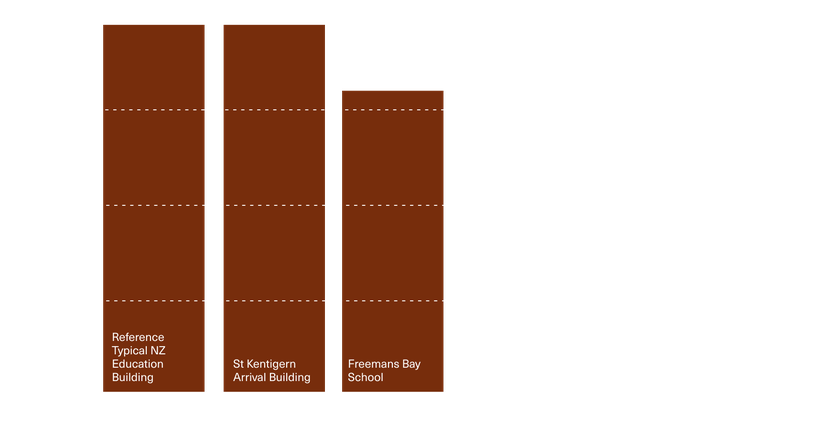Aotearoa is going carbon neutral by 2050.
We are too.
The architecture industry is at an hour of reckoning. When we talk about climate change, there can be no ignoring the fact that building construction is a major culprit – and that the industry as a whole is largely self-serving. We’re part of the problem, which makes it our problem.
But it’s also a challenge. A challenge that calls on the very stuff we hang our hats on: ingenuity, creativity, and a commitment to making an ultimately positive impact on Aotearoa’s built environment.
RTA Studio is already accredited by Toitu as a Net Carbon Zero company. So, when we say our ambition is to match government targets, we’re talking about the real stuff – the buildings we design for our clients.
To be clear, there are two types of carbon we’re talking about here.
Operational carbon – the carbon associated with operating a building, such as electricity.
Embodied carbon – the carbon associated with the production of materials used to build a building, like steel or glass.
We’re tackling both.
We have kicked things off by selecting a benchmark baseline to reflect where NZ’s average buildings are at now. Then, to track our progress, we’ve set ourselves some milestones.
RTA's ultimate goal is to reduce the carbon footprint of our projects by 100% by 2040.
RTA Studio Annual Carbon Reduction Analysis of Completed Buildings.

Proof points.
RTA Studio is a member of the New Zealand Green Building Council and is recognised as an industry leader in the integration of sustainability into architecture.
We led the way with Ironbank in 2009.
- Winner of NZIA New Zealand Architectural Medal
- Winner of NZIA Sustainability Award
- The First NZGBC 5 star ‘As Built’ rated commercial building in New Zealand
We pushed the envelope in residential with the Carbon Neutral C3 House in 2013.
- Winner of the prestigious International MIPM Sustainability Prize
- Shortlisted for the International Architizer A+ Sustainability Prize
- Winner of the ‘Future Projects’ Category at the World Architecture Festival
And we went further with Scion in 2021.
- Achieved embodied carbon zero at time of completion as certified by eTool
- Achieved the 2030 target set by the RIBA (Royal Institute of British Architects) of 500kg of carbon/ msq
Carbon Case Studies
RTA Studio started the process of modelling the embodied carbon of a range of our housing and commercial projects in 2021.
A specialist consultant carried out analysis of the embodied carbon from Cradle to End of Construction to form a baseline to measure future projects against and track progress towards the goal of Net Carbon Zero by 2050.
Commercial Projects
Embodied Carbon End Of Construction

Alexandra Park
Joll Road
Halcyon HQ
*Biogenic carbon has been included in embodied carbon calculations
*Only ‘Project Stages’ + ‘Construction Stages’ have been included in the calculations (A1-A5)
Residential Projects
Embodied Carbon End Of Construction

Hapua House
Buckleton House
Living House
*Biogenic carbon has been included in embodied carbon calculations
*Only ‘Project Stages’ + ‘Construction Stages’ have been included in the calculations (A1-A5)
Education Projects
Embodied Carbon End Of Construction

Saint Kentigern College
Freemans Bay School
*Biogenic carbon has been included in embodied carbon calculations
*Only ‘Project Stages’ + ‘Construction Stages’ have been included in the calculations (A1-A5)